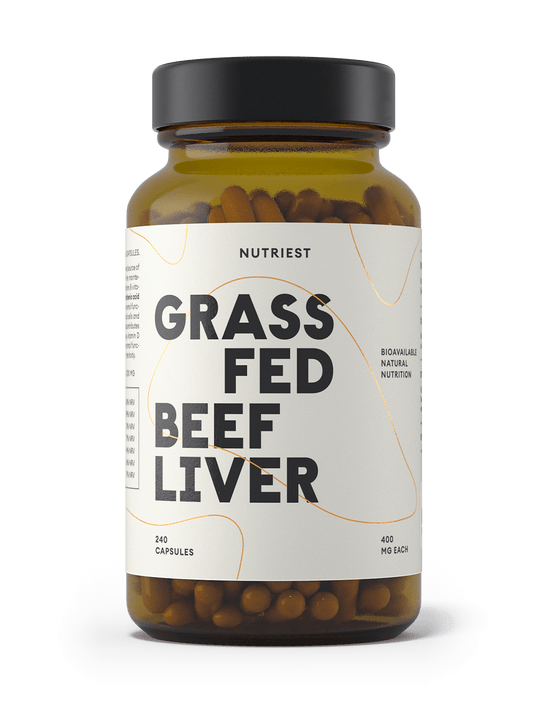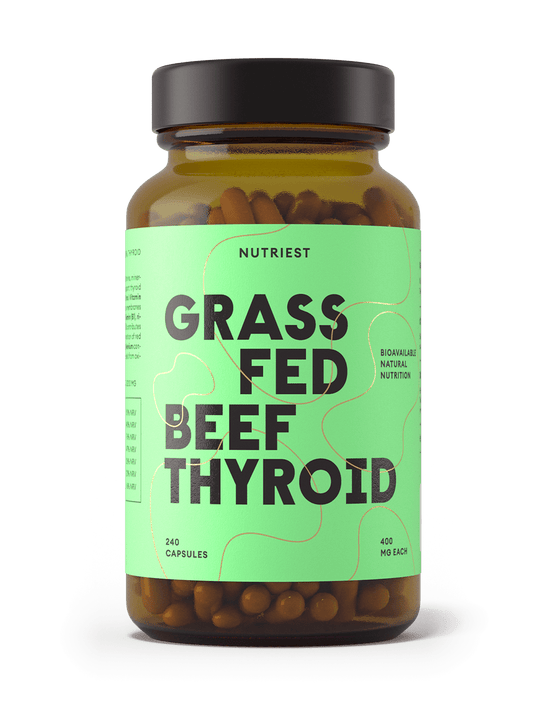Cancer is one of the most complex and feared diseases of our time. But what if the root of the problem lies not primarily in genetic mutations, but in a deeper deficit—a disruption of cellular energy ? This is precisely the thesis of American biologist Ray Peat, who, in his article "Cancer: Disorder and Energy," takes a radically different look at the development of cancer.
In his view, cancer doesn't begin with uncontrolled cell growth, but rather with a fundamental energy loss at the cellular level. When cells can no longer produce sufficient energy—be it due to chronic stress, poor nutrition, or hormonal imbalances—they become unbalanced. This imbalance opens the door to degenerative processes such as unregulated cell growth.
In this article, I'll show you why Peat's perspective is so revolutionary, how cellular energy is related to cancer—and, most importantly, what you can do in your everyday life to boost your energy production and protect yourself preventively.
Cellular Energy and Cancer: The Invisible Connection
Most people associate cancer with genetic defects or external influences such as radiation or pollutants. But according to Ray Peat, the origin of the disease lies much deeper – in the fundamental ability of our cells to produce energy efficiently. When cellular energy is disrupted, it can have serious consequences for cell function and, in the long term, contribute to the development of cancer.
At the heart of this view are the mitochondria , the "power plants" of the cells. They produce ATP from sugar and oxygen - the body's universal energy unit. If this process gets out of balance, the cells switch to emergency mode, an inefficient metabolic pathway called glycolysis, even when oxygen is present. This phenomenon - also known as the "Warburg effect" - was observed by scientists as early as the early 20th century. However, Ray Peat sees this not as a side effect, but as a primary cause of cancer : the cell escapes to a more primitive energy mode that promotes growth but offers no stability.
This energetic dysfunction can be triggered by many factors: chronic stress, oxygen deficiency, hormonal imbalances—but also by an unhealthy diet , especially one high in PUFAs (polyunsaturated fatty acids) . According to Peat, these have a negative effect on the mitochondria and promote oxidative stress, which further blocks energy production.
The connection between thyroid function , metabolism, and energy is also crucial: An underactive thyroid slows down the entire organism—including cellular respiration. Therefore, anyone who wants to improve thyroid function not only supports their metabolism but also creates a cellular environment that is less susceptible to degenerative processes.
So, if you're looking for a holistic understanding of health, there's no getting around cellular energy. It's the foundation for growth, regeneration—and also for your cells' ability to resist pathological changes.
Why you should avoid PUFAs
A central theme in Ray Peat's health philosophy is the critical examination of PUFAs (polyunsaturated fatty acids) . While they have long been considered "healthy" in mainstream nutritional science, Peat sees them as a hidden threat—particularly for cellular energy production and the development of chronic diseases such as cancer.
PUFAs, especially omega-6 fatty acids such as linoleic acid, are found in many industrially processed foods. Vegetable oils such as sunflower, corn, soy, and safflower oil are veritable PUFA bombs. However, studies show that sustained high consumption of these fatty acids increases the susceptibility of cell membranes to oxidative stress —a condition that can significantly disrupt mitochondrial function.
A review published in the British Journal of Cancer , for example, shows that increased lipid peroxidation , the oxidative breakdown of fats in cell membranes, is directly linked to cancer development (BJ Cancer, 2007). And it is precisely this lipid peroxidation that is promoted by PUFAs – they are significantly more unstable than saturated fats and rapidly decompose into toxic byproducts such as aldehydes when exposed to heat, light, or oxygen.
According to an analysis by the Federal Institute for Risk Assessment, the average German consumes around 10–15 g of linoleic acid daily—more than twice as much as 50 years ago. At the same time, chronic inflammatory and metabolic diseases, including cancer, have increased significantly. Ray Peat argues that this very development is an expression of energetic weakness at the cellular level—driven by a diet that does more harm than good to mitochondria.
So, if you want to improve your thyroid function and naturally boost your metabolism , it's worth taking a critical look at your fat intake. Replace PUFA-rich oils with more stable alternatives like coconut oil, butter, or olive oil. These promote energy production rather than inhibit it – and help your body remain more resilient at the cellular level.
Because energy starts with the right choice of nutrients. And often it's precisely what we leave out that makes the biggest difference.
Improve thyroid function for more cellular energy
The thyroid is much more than just a "gland in your neck"—it's the engine of your entire metabolism. Its hormones—especially T3 (triiodothyronine) —regulate the rate at which your cells produce energy. If the thyroid is sluggish, cellular energy production is also slowed down. This is precisely where Ray Peat comes in: He believes a well-functioning thyroid is the key to healthy mitochondrial activity—and thus also to cancer prevention.
“But my thyroid levels are normal – why should I worry?”
Many people suffer from subclinical hypothyroidism , even though their laboratory values are within the normal range. Peat emphasizes that standard values are often misleading—more important are functional signs such as:
-
Cold hands and feet
-
Low body temperature (below 36.5 °C in the morning)
-
Chronic fatigue
-
Concentration problems or depressive moods
-
Hair loss or brittle nails
These symptoms indicate that your cells are not producing enough energy – despite supposedly "good" blood values.
What you can do to support your thyroid
Ray Peat recommends a number of natural measures to improve thyroid function and thus activate the metabolism:
-
Diet with a focus on easily digestible carbohydrates: fruit juices, honey and root vegetables provide quickly available energy.
-
Avoiding PUFAs: These inhibit thyroid function on several levels (see previous section).
-
Protein from high-quality sources: Milk, cheese, gelatin and eggs support hormone production.
-
Regular meals: Long periods of fasting stress the adrenal glands and reduce thyroid activity.
"I heard sugar is bad for the thyroid – is that true?"
Not a blanket statement. According to Peat, sugar from natural sources such as fruit is a valuable fuel for the metabolism. Unlike highly processed carbohydrates, fructose and glucose from natural foods promote liver function and thus the conversion of inactive T4 into active T3. In this view, sugar is not an enemy, but an important partner in the fight against energy deficiency at the cellular level .
In short: A healthy thyroid brings light and warmth into your body—quite literally. When you support it, all of your cells benefit. And that, in turn, makes you more resilient against chronic diseases like cancer.
Conclusion: Understand cancer, strengthen energy
Cancer isn't just a genetic fate—it can also be understood as an expression of a profound disruption of cellular energy . Ray Peat's perspective opens our eyes to connections often overlooked in conventional medicine: the central role of energy metabolism, the importance of a functioning thyroid , the risks posed by PUFAs —and the power of a diet that provides the body with real, bioavailable nutrients.
Here are the most important points again:
-
Healthy cellular energy production protects your cells from degenerative changes.
-
Avoiding PUFAs is not a trend, but an effective strategy against oxidative stress.
-
An active thyroid function improves your entire metabolism – and thus your health.
-
You can stimulate your metabolism naturally , for example through light, a balanced diet and moderate exercise.
-
The Ray Peat diet offers a holistic way to stay vital and resilient in the long term.
➡️ Now it's your turn: Observe your body. Pay attention to energy, warmth, and digestion. Start with small changes—for example, replacing vegetable oils with butter or starting your day with a nutrient-rich breakfast.
If you want to learn more about Ray Peat's approach or dive into this way of thinking step by step, stay tuned - more posts to come!





